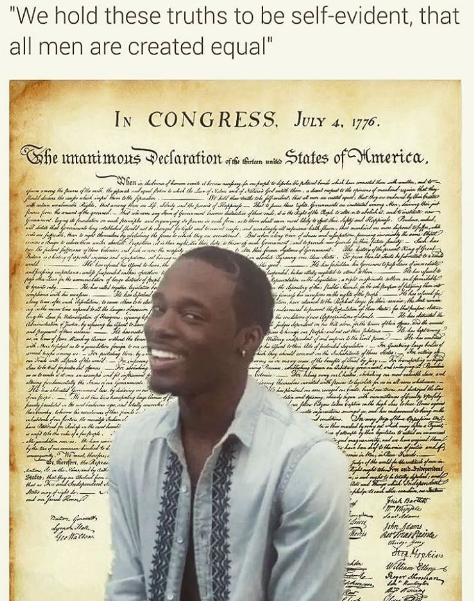African American
Related: About this forumTreasonousBastard
(43,049 posts)and Native Americans.
Probably didn't think too highly of the Spanish, either.
Person 2713
(3,263 posts)http://www.smithsonianmag.com/history/the-dark-side-of-thomas-jefferson-35976004/
NY times & Smithsonian
so there
for the eye rollers
And the yes butters
kwassa
(23,340 posts)some excerpts:
The critical turning point in Jefferson’s thinking may well have come in 1792. As Jefferson was counting up the agricultural profits and losses of his plantation in a letter to President Washington that year, it occurred to him that there was a phenomenon he had perceived at Monticello but never actually measured. He proceeded to calculate it in a barely legible, scribbled note in the middle of a page, enclosed in brackets. What Jefferson set out clearly for the first time was that he was making a 4 percent profit every year on the birth of black children. The enslaved were yielding him a bonanza, a perpetual human dividend at compound interest. Jefferson wrote, “I allow nothing for losses by death, but, on the contrary, shall presently take credit four per cent. per annum, for their increase over and above keeping up their own numbers.” His plantation was producing inexhaustible human assets. The percentage was predictable.
In another communication from the early 1790s, Jefferson takes the 4 percent formula further and quite bluntly advances the notion that slavery presented an investment strategy for the future. He writes that an acquaintance who had suffered financial reverses “should have been invested in negroes.” He advises that if the friend’s family had any cash left, “every farthing of it [should be] laid out in land and negroes, which besides a present support bring a silent profit of from 5. to 10. per cent in this country by the increase in their value.”
........................................................
Yet Jefferson was right, prescient, about the investment value of slaves. A startling statistic emerged in the 1970s, when economists taking a hardheaded look at slavery found that on the eve of the Civil War, enslaved black people, in the aggregate, formed the second most valuable capital asset in the United States. David Brion Davis sums up their findings: “In 1860, the value of Southern slaves was about three times the amount invested in manufacturing or railroads nationwide.” The only asset more valuable than the black people was the land itself. The formula Jefferson had stumbled upon became the engine not only of Monticello but of the entire slaveholding South and the Northern industries, shippers, banks, insurers and investors who weighed risk against returns and bet on slavery. The words Jefferson used—“their increase”—became magic words.
....................................................
And this world was crueler than we have been led to believe. A letter has recently come to light describing how Monticello’s young black boys, “the small ones,” age 10, 11 or 12, were whipped to get them to work in Jefferson’s nail factory, whose profits paid the mansion’s grocery bills. This passage about children being lashed had been suppressed—deliberately deleted from the published record in the 1953 edition of Jefferson’s Farm Book, containing 500 pages of plantation papers. That edition of the Farm Book still serves as a standard reference for research into the way Monticello worked.
...........................................................................................
It had long been accepted that slaves were assets that could be seized for debt, but Jefferson turned this around when he used slaves as collateral for a very large loan he had taken out in 1796 from a Dutch banking house in order to rebuild Monticello. He pioneered the monetizing of slaves, just as he pioneered the industrialization and diversification of slavery.
Stuart G
(38,726 posts)He took the ideas from John Locke ...who wrote a paper in 1688, justifying the so called ,,"Glorious Revolution"......Locke was the leading political writer of the hundred years preceding the so called .."American Revolution.." All educated people knew Jefferson had taken some ideas from Locke......
Why Jefferson do it?..........to stick his third finger up at King George...that is why......
............................."Two Treatises on Government" justifies the revolution that the English Parliament carried out to get rid of the previous king of England that brought in King George's grandfather or maybe great grandfather as king..By quoting this well known writing, Jefferson was saying to King George that we have the same right to change our government, for the exact same reasons that your predecessors used to get rid of King James and put your family into power.....
Or.........what is good for the gooses.....is good for the goose's children..so Fuck You... King.
All politically educated people knew that Locke's ideas were used in the Declaration of Independence, it is just that most people in the USA do not know Jefferson was the great idea stealer from the greatest political thinker of that age..John Locke..and..most do not know why?
Special thanks to my English History teacher who taught me this in 1961..wish I remember his name..
at a place called the University of Illinois, at Navy Pier...![]()
lunatica
(53,410 posts)Literally.
packman
(16,296 posts)Even though his vision of "all men" was rather narrow by our standards, it still was a noble and honorable vision.
bucolic_frolic
(54,399 posts)what a worker today yields his capitalist masters?
I'll bet it's a sight more than 4%
